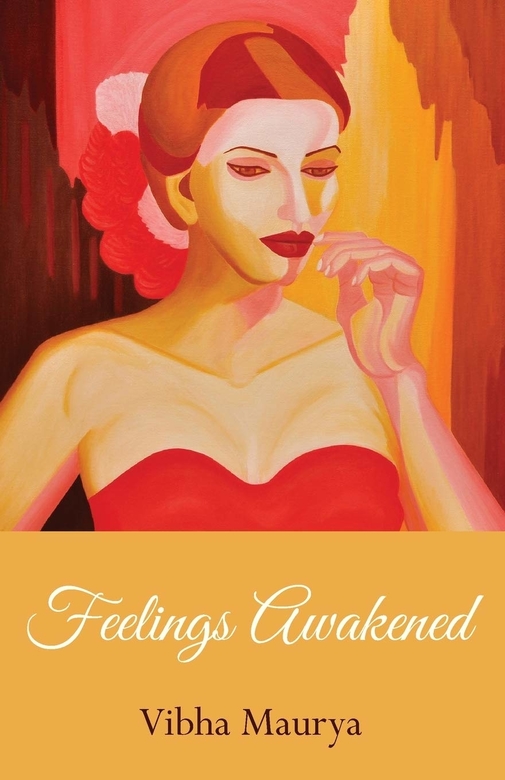
A vulnerable confession of poetry coupled with striking illustrations, Feelings Awakened by Vibha Maurya lives up to its name, both in the heart of the reader and the mind of the poet.
In this reflective and relatable collection, there are more questions than answers, making this an exploratory journey that the poet takes right alongside the reader. There are occasional streams of confident conclusions, borne of the poet’s personal experience and overcoming of struggle, but there is also an innocent and cautious curiosity in many of these pieces. The poems from childhood, particularly “A Brown Girl” and “My Village,” stand out as particularly compelling, and contain some of the most visceral, transportive passages.
The poetry is largely narrative, without the need for much unpacking of abstract ideas or symbolic exploration. The flow of ideas and the raw emotions of the verse keep the work engaging, but there is little demand for interpretation: “Life came to such a pass / But the search for destination continued, / Each crossroad hinting at the next crossroad, / And the destination smiled, smug and conceited.”
Maurya is unafraid to play with unusual juxtapositions, and anthropomorphizes various unlikely partners to great effect. These moments of abstraction are respites from the more narrative storytelling, and give readers a pause to muse and wonder. The illustrations help to continue the mood of the poems; the figure is usually in some form of repose, thought, or exhaustion, which tracks with the questioning, almost pleading tone in much of the collection.
Thematically, Maurya touches on a wide spectrum of ideas – the loss of youth and love, the uncertainty of seeking, intimacy, womanhood, mortality, travel, the weather and much more. This range also swings from observational poetry, with the straightforward sincerity of William Carlos Williams, to immediate emotional explorations, betraying a sometimes spontaneous and unfiltered pen. In these most confessional of moments, the directness of the writing works to Maurya’s advantage, allowing her to nail a feeling with absolute intention: “When love dies / The home becomes a prison. / People living together / Clash with each other / Like prisoners / Serving life sentences.”
On a technical level, there are some issues that deserve attention, including the enjambment choices in many of the poems. Simply breaking up lines of thought does not itself make a poem, and there are many instances where the choice of a line break feels awkward, or less impactful than a more obvious interruption a beat or two later. The words summon images and express the poet’s vision clearly, but some of the language lacks subtlety. There are also many unnecessary words, articles, and prepositions that clog up the vivid imagery of the poetry; some basic adjustments to the “completeness” of the sentences would make the point of certain pieces resonate more powerfully.
As a complete work, these 100 pages of poetry are a strong statement – a holistic view of life’s many uncertainties. Maurya alights from one seminal subject to another, exploring them with a unique and simple grace. This collection isn’t challenging or confrontational, but it will encourage readers to challenge their own views, values, and vision of themselves all the same.
Book Links
STAR RATING
Design
Content
Editing
Get an Editorial Review | Get Amazon Sales & Reviews | Get Edited | Get Beta Readers | Enter the SPR Book Awards | Other Marketing Services























Leave A Comment